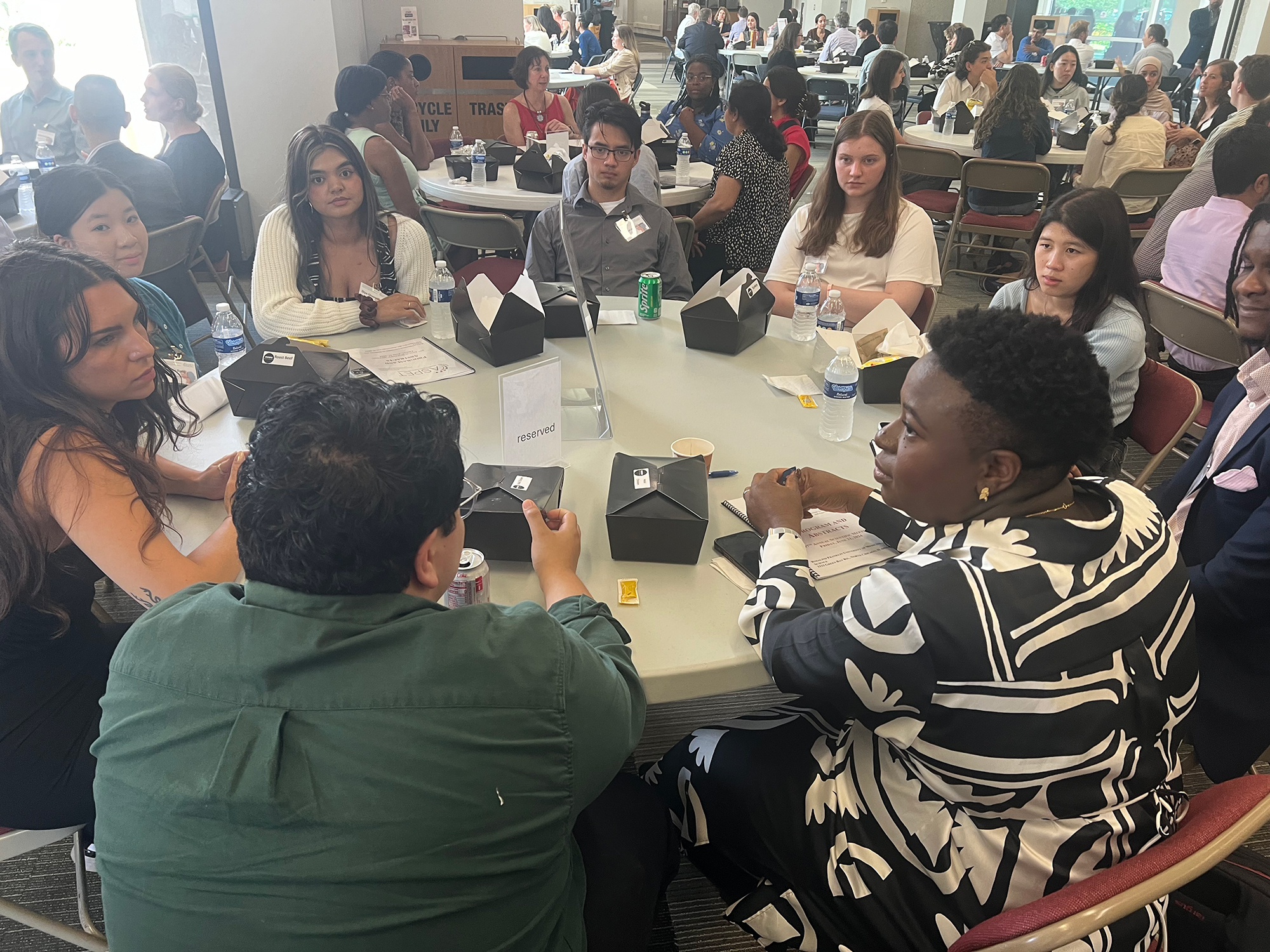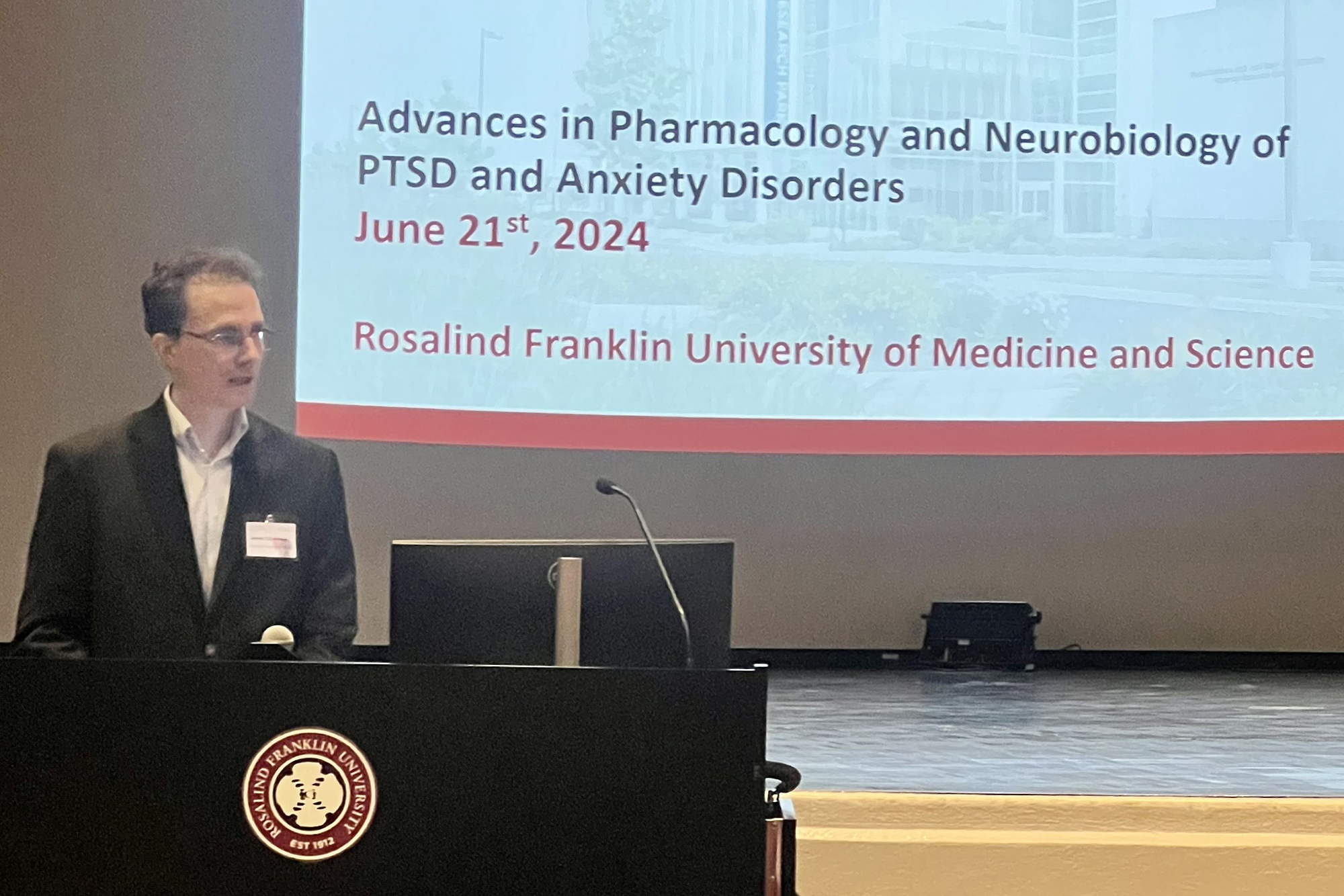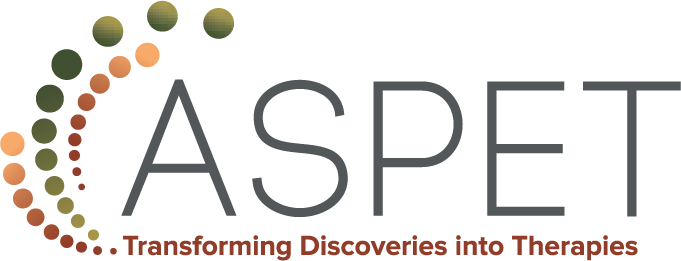The 37th Annual Meeting of the Great Lakes Chapter of the American Society for Pharmacology and Experimental Therapeutics (ASPET-GLC) was held at Rosalind Franklin University of Medicine and Science (RFUMS) in North Chicago on June 21, 2024. More than 165 pharmacologists, neuroscientists, biologists, clinicians and students attended the meeting. They represented academia and the pharmaceutical industry in the Midwest, including 24 ASPET members.
This year’s conference theme, “Advances in Pharmacology and Neurobiology of PTSD and Anxiety Disorders,” highlighted recent advances in the neurobiology and pharmacology of post-traumatic stress disorder (PTSD) and anxiety disorders. Keynote speaker Ann Rasmusson, MD of Boston University and the VA National Center for PTSD, gave a presentation entitled, “Incorporating the Neurobiology of PTSD into Treatment Development: Serendipity versus Design.”
The symposia also featured various nationally- and world-renowned experts in the fields of pharmacology and neuroscience of PTSD and anxiety disorders. The presenters evaluated novel pharmacological strategies for these conditions, including the use of psychedelics, neuropeptides, and inhibitors of enzymes which metabolize cannabinoids in the human body. Data were presented from human studies as well as preclinical data in animal models and cell culture. In addition, the neurobiology sessions discussed advances in our understanding of these disorders, which may be explored in future drug developments.
Main Symposium speakers included Amiel Rosenkranz, PhD (RFUMS, “Stress Dampens Prefrontal Cortical Regulation of Amygdala in Rats”); Sachin Patel, MD, PhD (Northwestern University, “Targeting Endogenous Cannabinoid Signaling for Stress and Trauma-Related Disorders”); and Leah Mayo, PhD (University of Calgary, “The Highs and Lows of Exploring the Endocannabinoid System as a Novel Therapeutic Target in the Treatment of PTSD: Evidence from Clinical Populations”).
The Young Investigator Symposium featured early-career faculty who shared their science. Speakers included Nicole Ferrara, PhD (RFUMS, “Developmental Differences in Fear Elevation and Supporting Neural Circuitry”); Hao Li, PhD (Northwestern University, “A Neuropeptidergic Mechanism Directing Behavioral Selection Under Conflicts”); and Hanna Molla, PhD (University of Chicago, “Effects of Low Dose LSD on Negative Mood States in Mildly Depressed Individuals”).
Fifty-four posters were presented at the poster session featuring a wide variety of subfields, including studies evaluating the efficacy of new pharmacological agents, and studies elucidating novel pathophysiological mechanisms underlying disease. As part of GLC’s mission to promote the benefits of ASPET membership to early-career scientists in the Midwest, all trainees who placed in the poster competition received complimentary membership to ASPET. Also, as part of our membership drive, an additional seven attendees joined ASPET after the meeting.

The Lunch and Learn events provided many opportunities for cross-disciplinary collaboration and learning. In the new event, Researcher-Clinician Connection, scientists who study mental health disorders were grouped with clinicians who treat these disorders. Many of the participating clinicians were affiliated with the Lovell Federal Health Care Center, the only VA hospital in the country that serves active military members and veterans.
The Career Development Workshop offered the opportunity for trainees to learn about various biomedical careers with mentors from AbbVie and RFUMS. Faculty mentors shared their experiences on the process of obtaining a university position, of being the founder of a biotech startup company, and being an advocate for science policy in the government. AbbVie mentors included a medical writer, a safety pharmacologist and an industry postdoctoral fellow.
In the Chicagoland Pharmacology Educator Symposium, pharmacology faculty from a variety of healthcare or research PhD programs discussed best practices for pharmacology education. Lastly, a tour of the Innovation and Research Park introduced attendees to RFUMS’ Helix 51, the only incubator in Lake County, Il. for biomedical start-ups and early-stage and international companies.
This meeting was co-sponsored by the Center for the Neurobiology of Stress Resilience and Psychiatric Disorders at RFUMS. Thirteen universities, two healthcare centers, and four pharmaceutical or biotech companies were represented at the meeting. To get more involved in the ASPET Great Lakes Chapter, follow us on Facebook and LinkedIn or contact the GLC President Dr. James O’Donnell.

